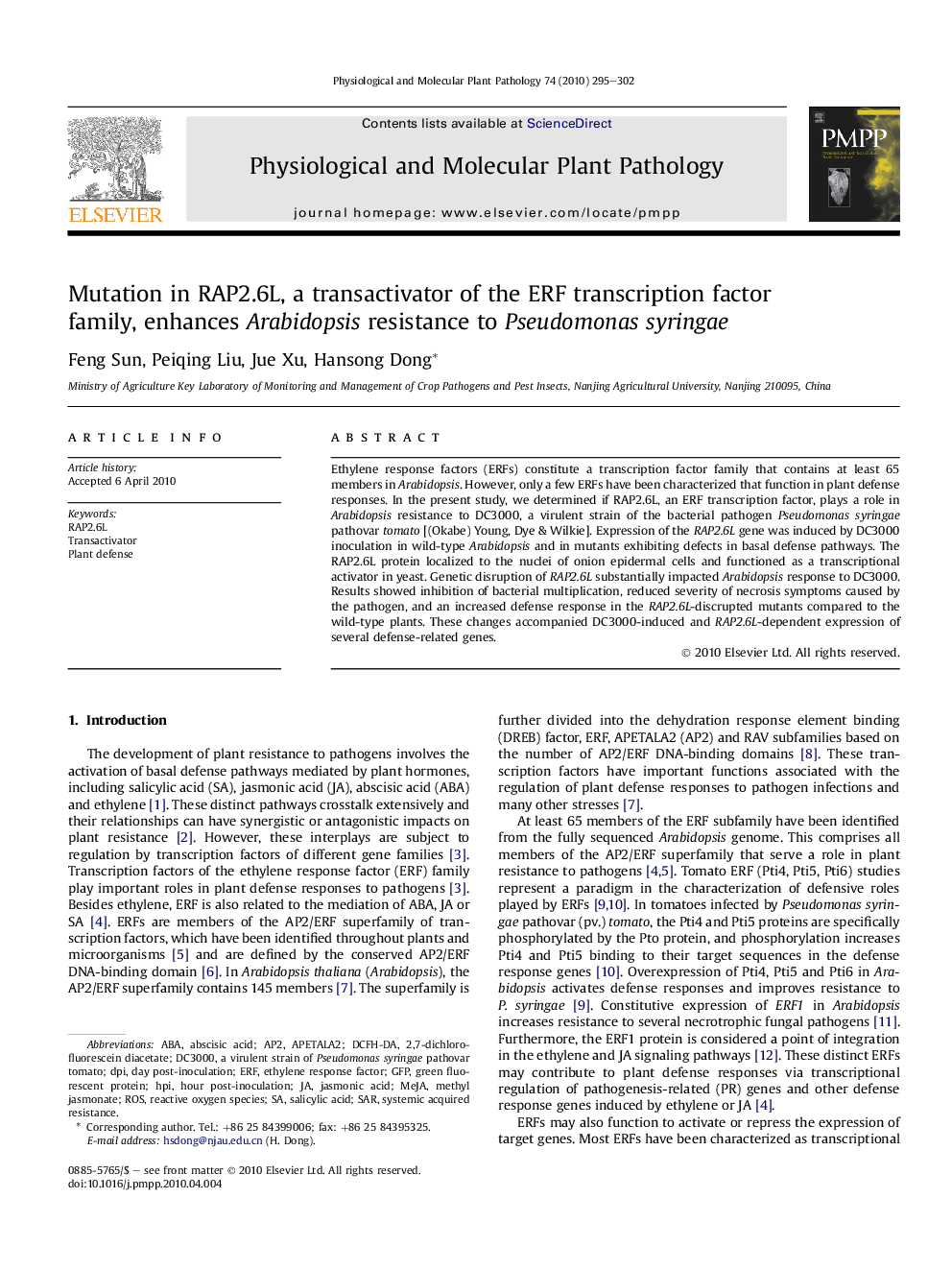| Article ID | Journal | Published Year | Pages | File Type |
|---|---|---|---|---|
| 2836494 | Physiological and Molecular Plant Pathology | 2010 | 8 Pages |
Ethylene response factors (ERFs) constitute a transcription factor family that contains at least 65 members in Arabidopsis. However, only a few ERFs have been characterized that function in plant defense responses. In the present study, we determined if RAP2.6L, an ERF transcription factor, plays a role in Arabidopsis resistance to DC3000, a virulent strain of the bacterial pathogen Pseudomonas syringae pathovar tomato [(Okabe) Young, Dye & Wilkie]. Expression of the RAP2.6L gene was induced by DC3000 inoculation in wild-type Arabidopsis and in mutants exhibiting defects in basal defense pathways. The RAP2.6L protein localized to the nuclei of onion epidermal cells and functioned as a transcriptional activator in yeast. Genetic disruption of RAP2.6L substantially impacted Arabidopsis response to DC3000. Results showed inhibition of bacterial multiplication, reduced severity of necrosis symptoms caused by the pathogen, and an increased defense response in the RAP2.6L-discrupted mutants compared to the wild-type plants. These changes accompanied DC3000-induced and RAP2.6L-dependent expression of several defense-related genes.
